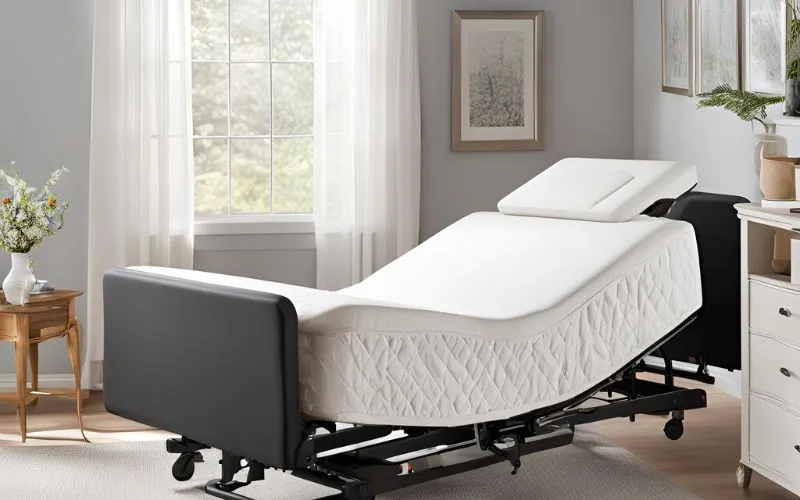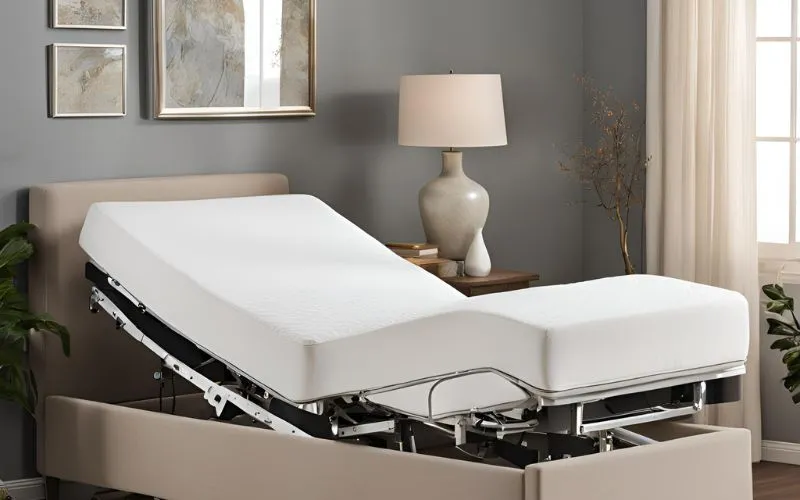The Benefits of Adjustable Beds for Arthritis Pain Relief

Introduction
Welcome to our comprehensive guide to understanding and addressing arthritis-related sleep disturbances. In this article, we’ll explore the impact of arthritis on sleep, the connection between sleep and arthritis pain, the benefits of using adjustable beds for arthritis pain relief, tips for using adjustable beds effectively, and much more. Join us as we delve into the world of arthritis and discover how adjustable beds can provide much-needed relief for those experiencing arthritis-related sleep discomfort.
Understanding Arthritis and Its Impact on Sleep
What is Arthritis?
Arthritis is a common condition characterized by inflammation and stiffness of the joints, often resulting in pain and decreased mobility. There are several types of arthritis, including osteoarthritis, rheumatoid arthritis, and psoriatic arthritis. Each type presents unique challenges and symptoms, impacting an individual’s quality of life and sleep patterns.
Types of Arthritis
Arthritis encompasses a range of conditions, but the most prevalent forms include osteoarthritis, which affects the protective cartilage at the ends of bones, rheumatoid arthritis, an autoimmune disorder, and psoriatic arthritis, which typically affects individuals with psoriasis. Understanding the specific type of arthritis a person has is crucial in determining the most effective treatment and support, particularly when addressing sleep disruptions.
Arthritis Symptoms and Sleep Disruptions
Arthritis symptoms can manifest in various ways, impacting both physical comfort and quality of sleep. It’s crucial to understand the specific symptoms associated with arthritis and how they contribute to sleep disruptions. Here’s a closer look at the symptoms and their effects:
- Joint Pain: Arthritis often presents with persistent joint pain, which can intensify during the night, making it challenging to find a comfortable sleeping position.
- Stiffness: Stiff, inflexible joints can lead to difficulty in changing sleeping positions and cause discomfort throughout the night.
- Swelling: Swollen joints can create additional discomfort and interfere with finding a restful sleeping posture.
- Fatigue: The combination of inadequate sleep and persistent discomfort can result in heightened fatigue, impacting day-to-day activities and overall well-being.
These symptoms not only affect the physical well-being of individuals with arthritis but also significantly disrupt their sleep, leading to a lack of restorative rest and increased fatigue. It’s essential to address these symptoms and their effects on sleep to improve overall well-being and quality of life for individuals with arthritis.
The Connection Between Sleep and Arthritis Pain
The Importance of Quality Sleep for Arthritis Patients
Quality sleep plays a vital role in managing arthritis symptoms, promoting healing, and supporting overall health. Adequate sleep can help reduce inflammation and pain, improve mood, and enhance the body’s ability to repair damaged tissues. For individuals with arthritis, prioritizing quality sleep is essential for managing the impact of the condition on daily life and well-being.
- Understanding the role of sleep in managing arthritis symptoms
- Exploring how quality sleep promotes healing and supports overall health
- Reducing inflammation and pain through adequate sleep
- Improving mood and emotional well-being with quality sleep
- Enhancing the body’s ability to repair damaged tissues through adequate rest
- Prioritizing quality sleep for managing the impact of arthritis on daily life
How Arthritis Pain Can Affect Sleep
Arthritis pain can have a significant impact on a person’s ability to get a good night’s sleep. Let’s explore the various ways in which arthritis pain can interfere with sleep quality and the resulting implications for individuals dealing with this condition.
- Increased Nighttime Awakenings: The persistent joint pain and discomfort associated with arthritis often lead to frequent awakenings during the night. This interrupted sleep pattern can leave individuals feeling fatigued and unrested, affecting their overall well-being and mental clarity during the day.
- Difficulty Falling Asleep: Arthritis pain can make it challenging to fall asleep initially, as individuals may struggle to find a comfortable and pain-free sleeping position. This struggle to attain a restful state can further exacerbate feelings of frustration and exhaustion.
- Disrupted Sleep Cycle: The cycle of arthritis pain and sleep disturbances can create a disruptive pattern, where individuals find it difficult to maintain a consistent and restorative sleep routine. The ongoing impact of disrupted sleep can contribute to heightened levels of irritability and reduced cognitive function.
Benefits of Adjustable Beds for Arthritis Pain Relief
Adjustable Beds: An Overview
Adjustable beds, also known as hospital beds, offer customizable support and positioning options to facilitate improved sleep quality and pain relief for individuals with arthritis. These beds feature adjustable head and foot sections, allowing users to elevate certain areas of the body, alleviate pressure on joints, and find a comfortable sleeping position that reduces pain and stiffness.
How Adjustable Beds Help Alleviate Arthritis Pain
Utilizing an adjustable bed can provide targeted relief for arthritis pain by allowing users to adjust the bed’s position to reduce pressure on sensitive joints, promote proper spinal alignment, and minimize discomfort while sleeping. By customizing the bed’s configuration, individuals can experience improved circulation and reduced inflammation, contributing to enhanced sleep quality and overall comfort.
Choosing the Right Adjustable Bed for Arthritis Relief
When it comes to selecting the right adjustable bed for arthritis relief, there are several crucial factors to consider. By choosing the optimal adjustable bed, individuals can significantly contribute to their comfort and overall well-being. Here are the key aspects to pay attention to:
- Quality of Mattress Compatibility: The compatibility of the adjustable bed with a high-quality mattress is essential for ensuring proper support and pressure relief. Look for adjustable beds that offer a wide range of mattress options to cater to varying comfort preferences.
- Range of Adjustment: A broad range of adjustment options is crucial for accommodating individual needs and providing optimal support. Consider the adjustability of the head, foot, and overall bed height to find the most suitable configuration for arthritis relief.
- Therapeutic Features: Look for additional features that can enhance the therapeutic benefits of the adjustable bed. Features such as zero-gravity positioning, targeted massage functions, and programmable memory settings can contribute to alleviating arthritis symptoms and promoting better sleep quality.
Choosing the right adjustable bed for arthritis relief involves careful consideration of these factors. By prioritizing mattress compatibility, range of adjustment, and therapeutic features, individuals can effectively support their arthritis management and improve their sleep experience.
Tips for Using Adjustable Beds Effectively for Arthritis Relief
Optimal Sleeping Positions
When it comes to finding the optimal sleeping position for arthritis relief, there are several factors to consider. By exploring various sleeping positions and making adjustments on an adjustable bed, individuals with arthritis can find the most comfortable and supportive posture to alleviate pain and improve sleep quality.
Elevating the head and foot sections of an adjustable bed can help relieve pressure on the back, hips, and knees. This adjustment reduces strain on the body, promotes proper alignment, and minimizes discomfort associated with arthritis.
For arthritis patients, experimenting with semi-upright positions can be beneficial for enhancing sleep quality. A semi-upright position can reduce pressure on the joints, making it easier to find a comfortable and supportive sleeping posture.
- Utilize pillows for added support and comfort, especially under the knees and lower back.
- Try different combinations of head and foot elevation to find the most suitable position for alleviating arthritis symptoms.
- Consult with a healthcare professional to determine the most effective sleeping position based on individual needs and arthritis severity.
Recommended Mattresses and Pillows
Pairing an adjustable bed with a suitable mattress and supportive pillows is essential for optimizing comfort and pressure relief. Memory foam mattresses and contoured pillows can offer targeted support for arthritis-related pain and stiffness, ensuring that individuals experience the full benefits of the adjustable bed’s features while promoting better sleep posture and spinal alignment.
- Memory Foam Mattresses
- Contoured Pillows
- Latex Mattresses
ProductFeaturesMemory Foam MattressesProvides targeted support and relieves pressure pointsContoured PillowsSupports neck and head alignment, reducing strain on musclesLatex MattressesNaturally contours to the body, offers consistent support
Other Sleep-Enhancing Practices
When it comes to managing arthritis symptoms and promoting restful sleep, implementing a range of holistic sleep-enhancing practices is crucial. Here are some additional tips to complement the use of an adjustable bed:
- Optimize Room Temperature: Maintain a room temperature between 60-67°F to create a comfortable sleep environment. Extreme temperatures can exacerbate arthritis pain and disrupt sleep.
- Minimize Noise and Light Disturbances: Use blackout curtains, earplugs, or white noise machines to reduce disturbances that can interrupt sleep and worsen arthritis symptoms.
- Practice Relaxation Techniques: Engage in relaxation practices such as meditation, deep breathing exercises, or gentle yoga before bedtime to calm the mind and body for better sleep quality.
- Consider Aromatherapy: Certain essential oils, such as lavender or chamomile, can promote relaxation and improve sleep quality. Use a diffuser or apply the oils topically in a diluted form.
By incorporating these additional practices, individuals can further enhance the benefits of adjustable beds, optimize their sleep environment, and experience improved sleep quality, contributing to overall arthritis management and well-being.
Conclusion
In conclusion, the profound impact of arthritis on sleep quality and overall well-being underscores the importance of exploring effective solutions for managing arthritis-related sleep disturbances. Adjustable beds offer a versatile and customizable approach to alleviating arthritis pain and discomfort, providing individuals with the opportunity to optimize their sleep environment and experience restorative and rejuvenating sleep. By understanding the connection between sleep and arthritis pain and utilizing the benefits of adjustable beds, individuals can take proactive steps toward enhancing their sleep quality and reclaiming comfort and support amidst the challenges of arthritis.




